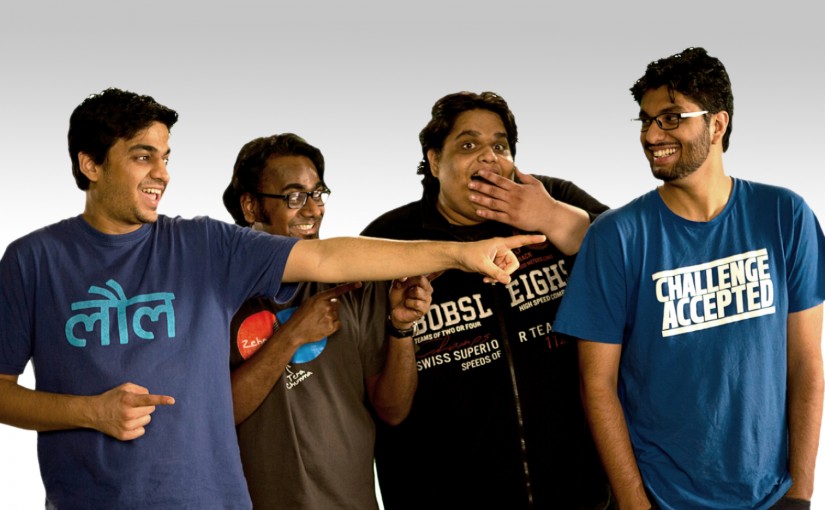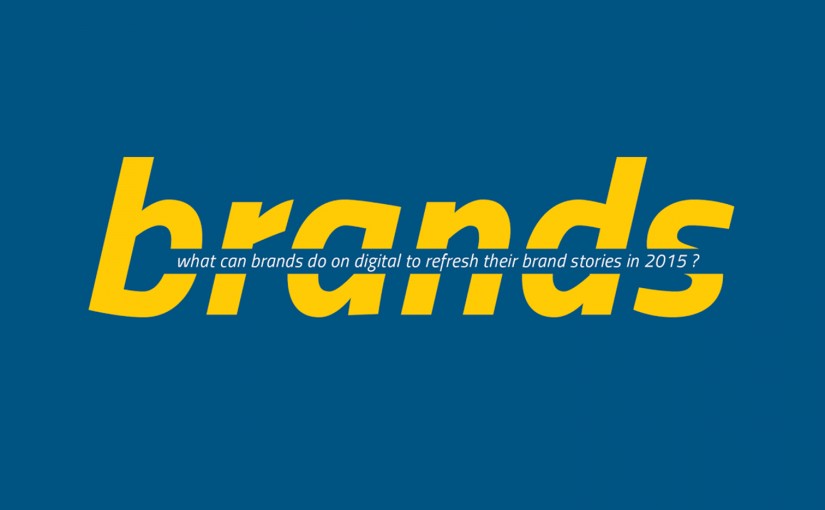Drop us a few lines about the task and we will get back immediately to see we how we can take the discussion forward. Alternately, just pick up the phone and speak with us at +91 9910034330 and we would be happy to help.
- - Do tell us a little about the nature of your business.
- - Be specific about what you’d like us to help you with.
- - Knowing your budget always helps us plan a suitable intervention.
- Blog
Blog the Talk- Edition 3: Technology tips to get started with business blogging and more – the FOSS way.
-

Blog the Talk- Edition 3: Technology tips to get started with business blogging and more – the FOSS way.
Blog the Talk- Edition 3: Technology tips to get started with business blogging and more – the FOSS way.

Blogworks- Blog the Talk discussion series was conceived to feature the best of learning from the ‘live web’ through panel discussions, talks and one-on-ones – mostly conducted online.
Blog the Talk series is presented by HP India, Personal Systems Group– Commercial, which is responsible for HP’s range of business notebooks, business desktops and
href=”http://welcome.hp.com/country/in/en/prodserv/handheld.html”>handheld devices; in association with Impact – the media, marketing and advertising weekly.
Technology tips to get started with business blogging and more – the FOSS way.
How does one introduce someone who was on the Internet before the term World Wide Web was even conceived? Someone who has participated in the net scene when the total Internet population in the country was not in millions, but in dozens – ok, let’s make that a few hundred? When search was still about gopher?
Delighted to have Kishore Bhargava – the original geek; FOSS exponent, the guru behind Gadget Guru; I could go on…
It was in one of Kishore’s talks, about 2 and half years ago, that Blogworks really took seed. I have never believed in coincidences, so I don’t think it was one that I attended that talk. Since then, a dear friend, Kishore has been around to counsel & guide.
Today, on Blog the Talk, Kishore helps us understand some of the pertinent technology related issues that we need addressing when we think about business blogging. Technology issues in a language that’s friendly and English you and I understand.
I must point out that keeping with, not just the Blog the Talk tradition of conducting these talks over IM, which we did, this conversation was actually conducted in true Bhargava family style, over IM, but sitting face-to-face. Discussing ‘way forward’ across the table, but actually punching the Questions and the Answers over an IM. Fun it was… :)
Enjoy!
Kishore Bhargava, CEO, Linkaxis Technologies has assisted large global corporations, as well as non-governmental organisations, define their technology roadmap installing world-class solutions for their operations in India and elsewhere in the world – all of this using free and opensource technologies.
Kishore is presently based in New Delhi.
Yours truly continues to be based right here too, in New Delhi ;)
All thoughts expressed by participants are personal opinion of respective speakers and do not represent the views of Blogworks or any other company/ organization.
Rajesh, Blogworks: Kishore, thanks for being on Blog the Talk.
We have spoken about this earlier…
Among the most crucial aspects that need consideration following an organization or a brand’s decision to go forward with a blogging or a similar initiative is: Which blogging engine to use? Which technology platform? What are your thoughts?
Kishore, Linkaxis: Thanks Rajesh. That’s a loaded question – it will need a long answer.
– First of all, the important question to ask is why do I need to blog? If there is a compelling reason, coupled with a well thought out strategy, then setting up the technology behind it is actually quite trivial
– There are many options to choose from. You have a plethora of free sites which offer templates, plugins and all the stuff you need to get you started or you the have the choice of setting up/ creating your own
Rajesh, Blogworks: I hope you are not saying set it up on a free blog site, but that there are several free options available in terms of engines; management systems; templates that one can play with on YOUR server, right?
Kishore, Linkaxis: Yes, that’s the point; if you are serious about it, then you really need to setup a blog on hosted/dedicated server and certainly not on the free servers and free services available.
If you just want a quick and dirty job, then go to any of the free engines but if you want a real blog for your organisation, then set it up on the server, ideally where your corporate website is hosted, as blogs.mycompany.com or mycompany.com/blog. The idea is to never lose focus of your brand.
By hosting on a free server, you may still be able to do some amount of branding, but the real impact is when all the stuff resides on your site. Of course, there are tons of other advantages, which we will discuss as we go along.
But just to give you an idea, there would even be issues in legal position if the blog is not your property?
But, coming back to the question.
Rajesh, Blogworks: Please do elaborate on the legal bit before we move on…
Kishore, Linkaxis: Ok take a simple example, if I have a blog on a free engine and I place a company advertisement on it. If the provider says that you can’t have advertisements on the site, then they can actually just turn around and shut the blog down.
This is known to have happened in the past.
Content on a free site will be difficult to copyright and protect. Disclaimers, Privacy Policy etc are all under your own control, if hosted on your server, rather than being the ones that the provider enforces.
There is also the issue of the total service offering on a free site, one will never be able to get access to the RAW logs of traffic, and therefore, never have accurate web analytics.
Rajesh, Blogworks: To me the most important part has always been just the message that we are sending out to the world on the seriousness of the initiative – the perception of a free blog site is so non-business like.
Also, forbid a service is down/ taken down for any reason (like it happened last year) you don’t end up losing your business blog, a very crucial piece in your internal/ external communication outreach programme now.
Kishore, Linkaxis: True. Ok so coming back to the question of which platform does the corporate use for a blog.
The answer is they host their own blog on their own server. In order to do this a corporate will need a blogging engine or platform. There are many options to choose from there.
This is where I tend to favour the Free and Open Source Software (FOSS) and community. There are commercial engines available, but the real innovation is happening in the FOSS world.
Take for example what would today be the most commonly used blog platform on the Internet – WordPress (WP). WordPress has tons of features, fantastic templates, and a vibrant community of developers and users supporting it
Rajesh, Blogworks:You mean ‘free’ software?
Kishore, Linkaxis: No free and open source. I mean, that which costs nothing as in ‘muft’ and that which is ‘free’ as in freedom or ‘mukt’
Rajesh, Blogworks:Freedom to do what?
Kishore, Linkaxis: You have the freedom to do pretty much as you please. You can share it with your friends, you can examine the code, and you can change the code to improve it. The list just goes on and on.
Kishore, Linkaxis: Apart from WordPress there is also Moveable Type (MT), which is also a great engine.
Rajesh, Blogworks: Yup, we are on MT.
Kishore, Linkaxis: But at the end of the day, you need to ask, where do I get my support and where are the skills to help us manage the site?
Rajesh, Blogworks: Let’s just talk about these two, what are the key differences?
Kishore, Linkaxis: In principle the two engines are very similar. They form the basis of what are known as Content Management Systems. There are really several hundreds of such engines and the main difference between them is the platform or programming languages used along with the database used.
MT uses a great programming language called Perl, which was originally designed as a scripting engine for text manipulation and automation of mundane tasks by System Administrators but it is now used for just about any job. I have seen some amazing applications written in Perl.
The only problem with Perl is finding people who know it well and who can exploit its true power.
Rajesh, Blogworks:Why, is it a difficult language?
Kishore, Linkaxis: Perl is not really difficult, it’s just that not many current generation of programmers know anything about it so it gets ignored and used mainly by old-timers.
Rajesh, Blogworks:Hmmm, you just called Guru, an old timer!
Kishore, Linkaxis: You must also understand that a 30 yr old in the IT industry is considered an old timer.
Rajesh, Blogworks: You will have to explain this to Guru I think, lol.
Kishore, Linkaxis: Guru and I are about the same age.
Rajesh, Blogworks: Lol.
Kishore, Linkaxis: On the other hand, WP uses the one thing that really gave a boost to FOSS. What is popularly known as the LAMP – Linux Apache MySQL and PHP.
Perl is considered an old language and is just not used by most. Only the really, smart guys use it.
Rajesh, Blogworks: ;)
Kishore, Linkaxis: What is very popular today is this language called PHP. This was designed from the ground up to be a web language and is therefore just more suitable.
Kishore, Linkaxis: WordPress is based on PHP and the PHP community world-wide is HUGE!

Rajesh, Blogworks:Is the technology the only difference between the two?
What about paid/ unpaid; what about the key area of support – as a business I need support, doesn’t matter, many times, if I need to pay to assure that.
Kishore, Linkaxis: Well, first was the technology. Next is the fact that MT has not been completely FREE. Although at the time of publishing this talk a new beta version of MT has been released under an opensource license.
Rajesh, Blogworks: But then WordPress, being free, doesn’t offer any committed support. MT has assured support and business and enterprise packages!
Any serious blogging initiative will want to address questions of speed and quality of support; upgrades etc. What are your thoughts?
Kishore, Linkaxis: Well, I have very strong thoughts about paid support. I buy a lot of software for my clients and getting support on that is not always easy. Even the big 3 companies, whoever they may be, just cannot handle or are not geared to provide quality support. I have suffered extensively, but I won’t name them here.
On the other hand, I just reach out to the FOSS community and issues get resolved within seconds, if not earlier. Imagine, talking directly to the author of the software. Who else can guide you better?
I think the corporate world needs to shed its fear of the FOSS community and the sooner it happens, the better it would be for them.
In fact, consider this, who is the FOSS community? It basically consists of people like you and me, who have day jobs with corporates and by night we work on projects of our own choice which we later publish or release under a FOSS license.
Let me put it this way; you have a MT blog right? Have you been able to reach out to Six Apart for support and have they been able to resolve any issues you may have had?
Rajesh, Blogworks:Well yes, I do subscribe to an inexpensive support package and yes, they are fairly quick in responding but my problem on ‘resolutions’ has been that being a non-techie I still need to reach out to an expert.
So support is good but someone needs to still follow the instructions, so yes to that extent I do agree that people who understand MT, in India, are relatively fewer and for me support has still meant Guru and you.
Kishore, Linkaxis: So, though paid support is a good thing when it works but in my opinion it’s a little over-rated. I can still get paid support from an individual or a consulting firm that specialises in the platform I use. There are many options there and it works much better than relying only on the company that produces the software. MT has full solutions available too but, of course, they cost a bit more.
Rajesh, Blogworks:Interesting. So can we agree that MT is as good an option if you had people around who understand Perl?
MT also has a 4.0 beta out, which has received great reviews, as has their decision to go open source.
Kishore, Linkaxis: At the end of the day, I’d say when setting up a blog you will hire a consultant or a firm to do a bunch of work for you, make sure they know the engine you select, or they recommend to you.
MT going opensource will change things, but only slightly. The skills to manage and make good sites will still be a challenge.
Rajesh, Blogworks: So, let an expert decide…

Kishore, Linkaxis: It will come back to the issue of programming language used. Today, PHP programmers can be hired for as low as Rs.5000/- per month, a good PERL programmer will cost at least times more.
Rajesh, Blogworks: In terms of performance, how would you rate either?
Kishore, Linkaxis: That’s just it, at the end it does not matter, both will be very similar in performance, though PHP is actually leading a little there and only getting better. The larger sites would be better off with PHP.
Rajesh, Blogworks:And they are dynamic right? PHP!
Kishore, Linkaxis: Sites created by PHP or Perl are both dynamic sites with content sitting in a database and pulled out and refreshed whenever a user visits the site.
Rajesh, Blogworks: Typically how much money would one end up spending on a blog design?
Kishore, Linkaxis: Not very much, hosting can begin at less than a INR 3K (USD 75 approx) but expect to pay around INR 12K (USD 300 approx), annually, for a good host. Using a FOSS backend, design etc. should see you through in about a Lac of Rupees? (a little less than USD 2500) Hire a good design & development team. Hire a good strategy team – the strategy counsel is not included in the costs I mentioned and could be the critical differentiator.
Rajesh, Blogworks: ;)

Kishore, Linkaxis: To summarize:- A corporate blog should not be setup on one of the free sites
- Should ideally be part of the main website
- Should use one of the FOSS products like MT or WP
Rajesh, Blogworks: And what beyond a blogging engine? What does a
href=”http://en.wikipedia.org/wiki/Content_management_system”>Content Management System mean? When should an organisaton/ brand consider using those instead?
Kishore, Linkaxis: A CMS, for example, Drupal and Joomla (there are many-others) have many more features. In a way a blog engine is a simple CMS but the CMS’ just have more features like workflow, forums, file repositories etc.
Plus many of the CMS engines have Blogs as one of the components, allowing a corporate to create a multi-user blog on the site. For example, separate blogs for all leadership team maybe – CEO, CFO the HR head etc.
Using a CMS a company website can get a real life.
Content can be changed and managed in a much easier manner, with the requisite workflow for editors, sub-editors and contributors
Think of it as a newspaper for the organization – one persons gathers the news, pushes it to his/her boss and then it eventually makes its way to the head of the page or in this case the top of the site.
Forums, which form the ideal platform for brainstorming and Wikis which are great for collaboration, are also an integral part of every good CMS available today.
A corporate setting up a new website should consider using a CMS rather than anything else. It gives them the maximum amount of flexibility and they can easily add features like we have discussed.
Rajesh, Blogworks: But these sound complex, how easy are they to use?
Kishore, Linkaxis: They are all very easy to use and are all managed via a web-browser. The issue is mainly in the one-time setup.
Rajesh, Blogworks:Cool, so it can really be managed internally by ‘a person’ or a small team’?
Kishore, Linkaxis: In most cases, it can be managed by a non-technical person. Giving control of the site to the people who actually create its content. Many of the servers on which you can host your website give you these options at a single mouse click.
This is why some people package it as a ‘black-box’.
Rajesh, Blogworks: Yup, we have an offering like that ‘Blogworks Click & Choose Box’ – a box full of technology solutions, just click & choose (write to us for more details)
Kishore, Linkaxis: As I understand the Black Box is a server with tons of FOSS software pre-installed. The box is delivered to the client and can be easily added to their network.
The client then selects the components and products that they would like to use and it’s ready to go:- A blogging engine
- A wiki engine
- A Forum engine
- A CMS
- A photo gallery
- And dozens of others… all pre-installed and a click away from action
Rajesh, Blogworks: Does free and open source mean NO MONEY needs to be spent?

Design, execution, branding, management and maintenance still need due attention in my opinion.
Kishore, Linkaxis: Well, essentially you spend no money on licenses or software but spend it all on services – you pay the consultants you hire. You don’t waste huge amounts of money on license fees where you agree to use the software and don’t ever actually own it. You do realize that most proprietary software cannot actually be bought. The ‘End User License Agreement’ just states that you agree to use the software and are governed by the terms and conditions of its use.
Rajesh, Blogworks: A lot of times we find that organisations are thinking of blogs as ‘fringe’ and not really investing the best time, money and effort in thinking through the issues that we just discussed.
Kishore, Linkaxis: Organisations sometimes do not treat blogs seriously. The danger is if they take half measures, they can get burnt and quite badly at that. Blogging is a serious business, corporate blogging even more so. To run a successful blog requires a lot of hard work and a dedicated team. Though the team could even be a single person!
Rajesh, Blogworks: Yes, we are seeing some people attempt that “to start with”, as they justify. It is a dangerous thing to do for a brand/ organisation that you otherwise spend millions building reputation and consistency across.
Rajesh, Blogworks: What about migration? Let’s say I set up a blog on say Blogger or WordPress or MT and tomorrow I want to move my blog from one to another or to a content management platform? What are the implications?
On Content (particularly comments); timelines; money etc?
Kishore, Linkaxis: Ah! This is an area where FOSS excels. Most of the FOSS engines have very good import/export features and allow for an easy migration.
In many cases it’s just a few clicks away and you can move from one engine to another inclusive of all content and even comments.
Rajesh, Blogworks: Because they want us to migrate to them? Lol.
Kishore, Linkaxis: Well, actually because they are more ‘open’. FOSS also believes in choice, so offering users the choice to change platform is important. A FOSS also adheres to standards. Funnily enough, not many people appreciate standards and the larger the company, the more they want to create their own standards. So there are so MANY of them to choose from, whereas it was really supposed to be a ‘standard’.
Rajesh, Blogworks: To keep others out? This is interesting. And FOSS is ‘even standards’ you mean?
Kishore, Linkaxis: FOSS uses published standards such as the ISO standards and on the Internet, stuff that is approved by the W3C. For migration of data between blogging platforms, XML is used. That way there is minimum loss of content and form.
Rajesh, Blogworks: In case of a migration from one engine/ platform to another, what is the impact on search engine rankings?
Kishore, Linkaxis: Well, I am not really sure. The rankings are based on URLs and not really the engine behind it. I am assuming that the rankings will remain as long as the URLs don’t change.
Rajesh, Blogworks: Would any design change have a similar impact or a change in content placement?
Kishore, Linkaxis : Certainly when content gets moved around. Most of these engines have what is known as a ‘permalink’ if the permalink changes then the ranking will be lost. If the permalink is the same structure then it will be the same.
Rajesh, Blogworks: So that’s the thing to look out for.
Kishore, Linkaxis: BTW, since I have been going on and on about FOSS, I’d like to point you to a great annual event that happens in Delhi – Freed.in – freedom in technology & software. The event is organized by the India Linux Users Group – Delhi Chapter. This year it is scheduled on 28th and 29th of September 2007.
Come and be Freed! Hope to see you there.
Rajesh, Blogworks: Lovely. So, “Freed is the way to go,” says Kishore. “Blogging is the way!” says me. (Psst: We repositioned Freedel as Freed.in for the ILUG -Delhi – fun it is working with them.)
Dear all, please do take the conversation forward.
Eager to read more? Read:
Edition 1 – Impact of Blogs & Social Media on Business & Marketing.
Edition 2 – Impact of Social Networks and User Generated Content – an India perspective.Disclaimer: Views of authors are personal and do not represent the views of Blogworks, or any of its clients.
-
Contact
conversations@blogworks.in
+91-9910034330 -
Newsletter
-
Social
























